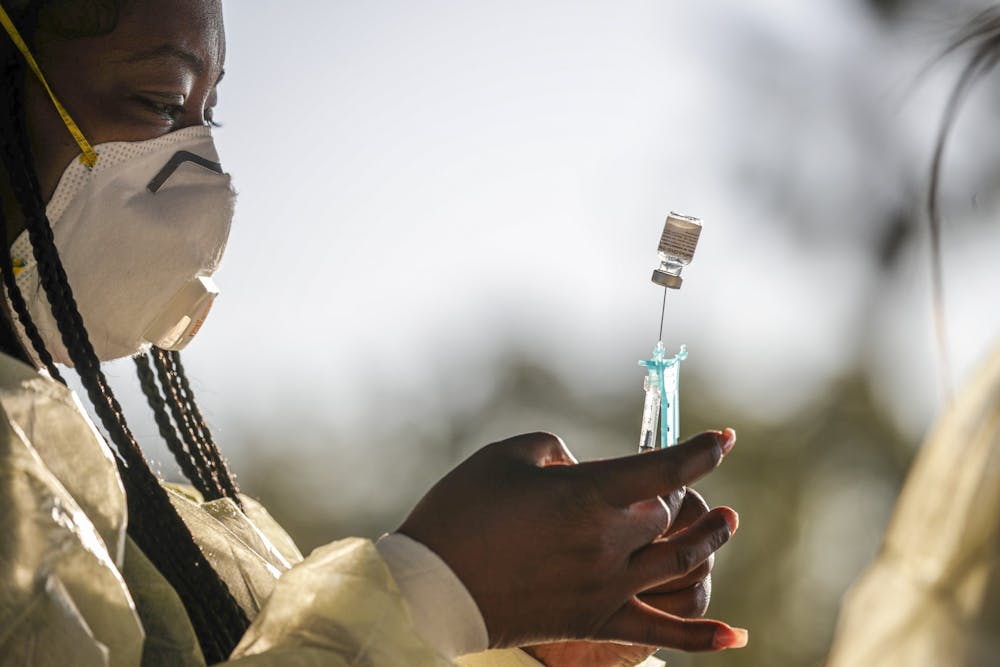In Indiana, 1,266,129 individuals are fully vaccinated for COVID-19, as of April 6. As more people are vaccinated, more people are also sharing their experiences with side effects from the vaccine. This shouldn’t discourage anyone from being vaccinated — side effects are usually mild, and proof that the vaccine is working.
However, women are more likely to report side effects from the COVID-19 vaccine than men. Out of the first 13.7 million COVID-19 vaccine doses administered to Americans, 79.1% of reports of side effects came from women, even though only 61.2% of the vaccines were administered to women, according to a study by the Centers for Disease Control and Prevention. Additionally, almost all rare anaphylactic reactions to the vaccines were experienced by women.
Gender and sex influence every aspect of our lives — even vaccines are not immune. Constricting gender norms, differences in immune responses and the historic focus on cisgender men in clinical trials all play a role in these results.
Since these symptoms are self-reported, some of this difference may be attributed to social norms of masculinity, rather than significant differences in physical reactions. Research shows that men are less likely to see a doctor when they’re sick, so they may also be less likely to report their side effects.
“I am not at all surprised,” Dr. Sabra Klein, a microbiologist and immunologist at the Johns Hopkins Bloomberg School of Public Health, told the New York Times. “This sex difference is completely consistent with past reports of other vaccines.”
Despite how unpleasant side effects can be, physical reactions are a sign that the vaccine is successfully prompting an immune response. Women generally have stronger and more active immune systems than men, Dr. Cole Beeler, a medical expert on IU’s COVID-19 response team, said. It makes sense that women would then experience stronger side effects.
“Women tend to have different immune responses than men,” Beeler said in an email. “Sometimes this is an advantage sometimes it is a disadvantage.”
Historically, women’s differing responses to medical treatment has not been prioritized in research.
In 1977, the Food and Drug Administration recommended all women with childbearing potential be excluded from the initial phases of drug trials. This policy was interpreted to include even single women and women who were using contraception, and led to a shortage of data on how drugs would affect women. It wasn’t until 1993 that Congress required women to be included as subjects in research funded by the National Institutes of Health.
The COVID-19 vaccine trials included women, but the side effects of the COVID-19 vaccine were not sufficiently analyzed by sex, Klein told the New York Times.
Lower doses of drugs can achieve the same result in women as a higher dose does in men due to differences in how drugs are absorbed and metabolized. A lower dosage of the COVID-19 vaccine for women was not tested in clinical trials, even though this could be just as effective with fewer side effects.
You should absolutely get vaccinated. But if you’re a woman, be prepared to experience side effects that men probably won’t.
It’s normal.
Allyson McBride (she/her) is a junior studying English and political science. She is the vice president for the College Democrats at IU, nonfiction editor for An Inkslinger's Observance and a member of IU Student Congress.






